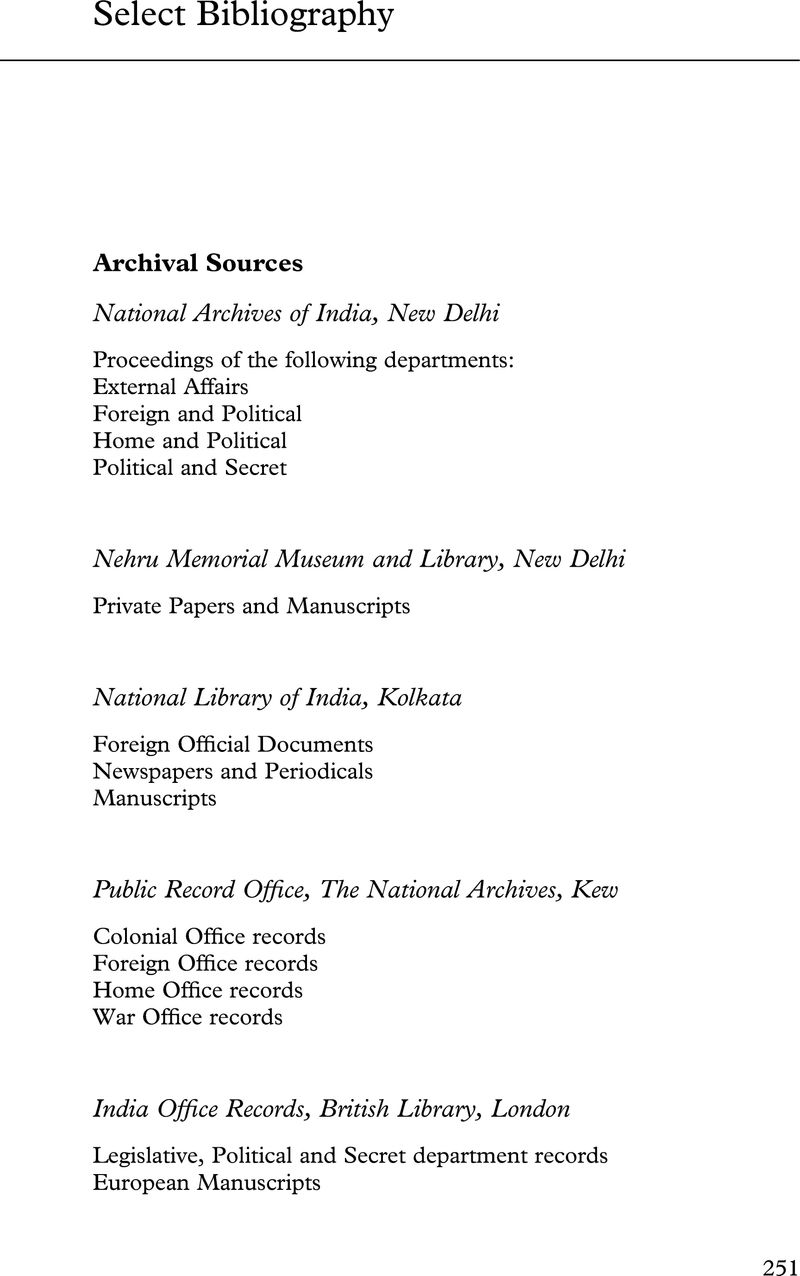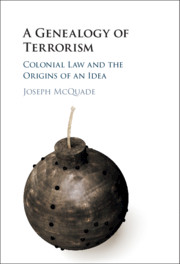Book contents
- A Genealogy of Terrorism
- A Genealogy of Terrorism
- Copyright page
- Dedication
- Epigraph
- Contents
- Figures
- Acknowledgements
- Abbreviations
- Introduction
- 1 Ethereal Assassins
- 2 ‘The Magical Lore of Bengal’
- 3 ‘The Eye of Government Is on Them’
- 4 Indefinite Emergency
- 5 Terrorism as a ‘World Crime’
- Conclusion
- Glossary
- Select Bibliography
- Index
- References
Select Bibliography
Published online by Cambridge University Press: 30 October 2020
- A Genealogy of Terrorism
- A Genealogy of Terrorism
- Copyright page
- Dedication
- Epigraph
- Contents
- Figures
- Acknowledgements
- Abbreviations
- Introduction
- 1 Ethereal Assassins
- 2 ‘The Magical Lore of Bengal’
- 3 ‘The Eye of Government Is on Them’
- 4 Indefinite Emergency
- 5 Terrorism as a ‘World Crime’
- Conclusion
- Glossary
- Select Bibliography
- Index
- References
Summary

- Type
- Chapter
- Information
- A Genealogy of TerrorismColonial Law and the Origins of an Idea, pp. 251 - 273Publisher: Cambridge University PressPrint publication year: 2020

